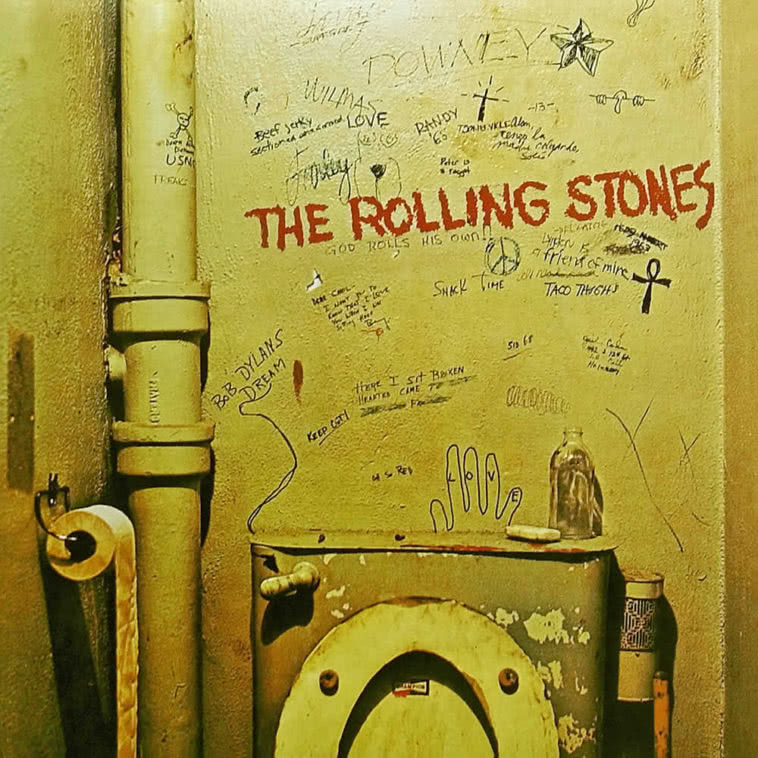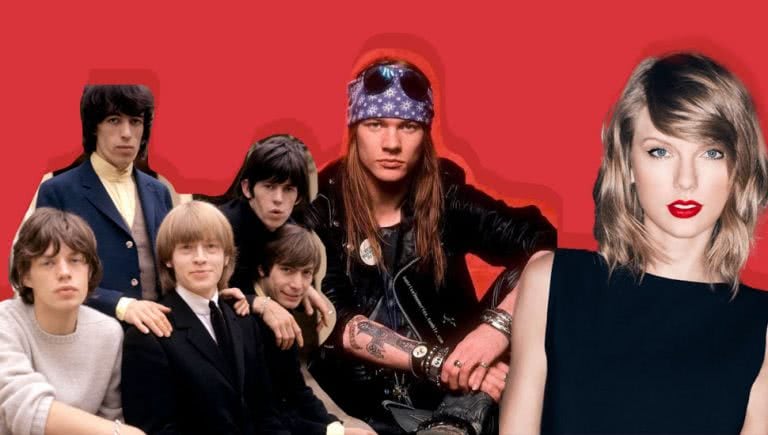Last year, UK radio station Gold pulled the 1969 global chart topper rock song ‘Melting Pot’ after a listener complained it was offensive.
The song, by English multi-racial band Blue Mink fronted by African American singer Madeleine Bell, was a call for racial harmony.
It went: ‘Take a pinch of white man / Wrap him up in black skin/ Add a touch of blue blood / And a little bitty bit of Red Indian boy / Oh, curly Latin kinkies / Mixed with yellow Chinkees/ If you lump it all together / And you got a recipe for a get along scene.”
These were suss phrases even then, but were overlooked in the ditty’s post-hippie multi-cultural stance against bigotry.
Times have changed, and attitudes have hardened and there’s a greater understanding of how rock lyrics and thoughts can sting, especially with younger, more vulnerable, listeners.
Here are some previous hits that wouldn’t duck under the PC wire these days.
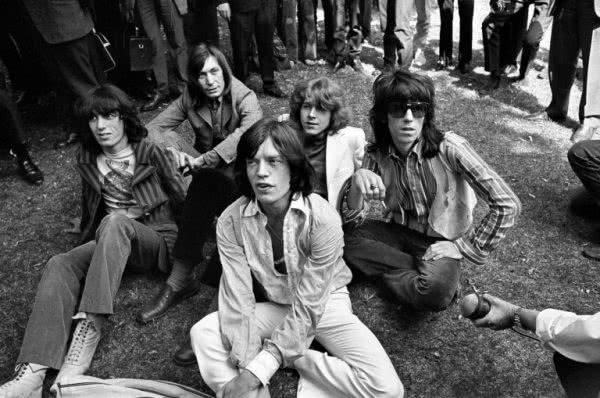
Racial Slurs in rock songs:
“Gold coast slave ship bound for cotton fields / Sold in the market down in New Orleans / Scarred old slaver knows he’s doing alright / Hear him whip the women just around midnight.”
Love Music?
Get your daily dose of metal, rock, indie, pop, and everything else in between.
The Rolling Stones 1971 song ‘Brown Sugar’ from Sticky Fingers is one of their greatest rockers.
But in one foul swoop, Mick Jagger combined misogyny, lust for black women (referencing his secret girlfriends, African American singers Marsha Hunt and Claudia Lennear), heroin glam, rape, and sadomasochist violence against women.
One interpretation is how heroin enslaves the user. Jagger himself has since admitted he would have self-censored himself more, and now changes the lyrics onstage.
You’d expect him to have written it in the Deep South, but he was actually in the NSW outback, filming Ned Kelly. The Stones’ mid-60s ditties like ‘Stupid Girl’, ‘Under My Thumb’ and ‘Yesterday’s Papers’ wouldn’t pass the misogyny test today either.
Check out ‘Brown Sugar’ by The Rolling Stones:

Domestic Violence in rock songs:
In Tom Jones’ 1967 song ‘Delilah’, the character spies the girl in silhouette on a window blind as she knocks boots with a feller. He waits for the rival to leave and then fatally stabs her.
It won the British song award, the Ivor Novello for best song musically and lyrically. In the US folk song, ‘Hey Joe’, which the Jimi Hendrix Experience had an electrified hit with in 1967, Joe is asked where he’s going waving his gun.
He replies, “Goin’ down to shoot my old lady / You know I caught her messin’ ’round with another man” before escaping to Mexico.
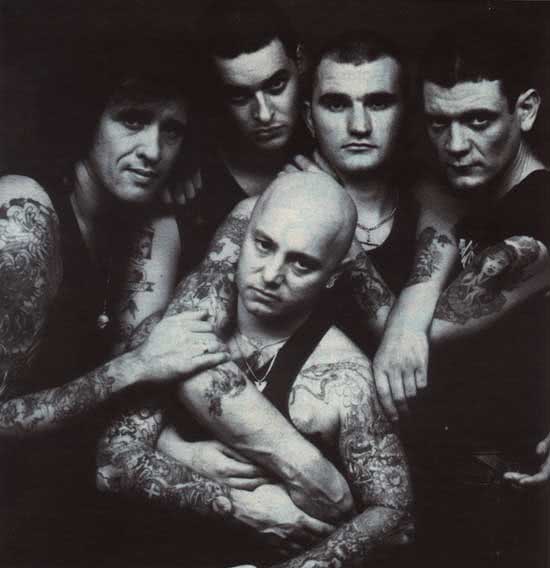
Rose Tattoo went a step further in ‘Bad Boy for Love’: “I went around just to see my chick/ I found her room and it was candle lit/ She’s makin’ love to another man/ I shot ’em both and they locked me in the slam.”
The Beatles were straightforward in 1965’s ‘Run For Your Life’: “I’d rather see you dead, little girl / than to be with another man.”
In Australian troubadour Ross Ryan’s 1974 song ‘Blue Chevrolet Ballerina’ the guy gets his revenge by removing her car brakes.
The good-time 1970 song ‘In the Summertime’, a hit overseas for jug band Mungo Jerry and in Australia by Melbourne’s The Mixtures, highlights double standards of women’s safety based on wealth: “If her daddy’s rich, take her out for a meal/ If her daddy’s poor, just do what you feel.”
Check out ‘In the Summertime’ by Mungo Jerry:

Most mortifying is ‘He Hit Me (And It Felt Like a Kiss)’, recorded by all-girl group The Crystals in 1962, with the line, “He hit me and I was glad.”
It was written by Gerry Goffin and Carole King after they found their babysitter was being regularly walloped by her guy. When asked why she put up with it, she replied that the dolt’s actions were motivated by his love for her.
Similarly, in Joanie Sommers’ 1962 song ‘Johnny Get Angry’ the girl urges the guy to show her who’s the boss, and be a brute to demonstrate that he cares.
For encouraging the “it’s OK” attitude, even if unintentionally, making this list are Tammy Wynette’s ‘Stand By Your Man’ in 1968 for encouraging women to put up with rubbish: (“But if you love him, you’ll forgive him even though he’s hard to understand”), and The Police’s 1983 song ‘Every Breath You Take’ for glorifying jealous stalking.
Out-Dated Stereotypes in rock songs:
According to Ray Stevens’ novelty 1962 song ‘Ahab the Arab’ all Arabs ride camels and have harems.
In the fourth verse of Rolf Harris’ 1960 hit ‘Tie Me Kangaroo Down, Sport’ the dying stockman’s attitude to First Australians was “Let me Abos go loose/ They’re of no further use, Lou.”
Harris always regretted the verse and use of the word; it was dropped, just like his career recently.
Check out convicted pedophile Rolf Harris perform ‘Tie Me Kangaroo Down, Sport’:

When the socially unhinged Axl Rose arrived in Los Angeles from Indiana, his impressions of its melting pot in ‘One In A Million’ (1988) was “Immigrants and f—-ts, they make no sense to me, they come to our country and think they’ll do as they please, like start some mini Iran or spread some fucking disease, they talk so many goddamn ways it’s all Greek to me.”
The other Gunners spent the next three decades explaining it as something of a cultural statement, but it’s still evil crap.
In 1977, the reaction to Randy Newman’s ‘Short People’ lyrics “They got little noses / and tiny little teeth/ They wear platform shoes/ on their nasty little feet” ranged from outrage to protests it was just harmless satire.
These days it would just evoke anger and a trigger off a call to topple his career. The video for UK band The Vapors’ 1980 hit ‘Turning Japanese made it seem a Japophile fantasy. The phrase stems from a nasty racist schoolboy visual joke about masturbation.
Perth teen band Supernaut’s ‘I Like It Both Ways’ (1976) added insanity and schizophrenia to the character. Guitarist Chris Burnham says, “We put that in as a sense of theatre and were mortified when we discovered later it added to the stereotype. Put it down to sheer naivety on our part.”
Mark Knopfler defended his use of the “f” word as a put-down of a non-butch rock star in Dire Straits’ ‘Money For Nothing’ (1985) as the thoughts of a specific character. But the word’s been snipped from recent Dire Straits compilations and Canadian radio banned the song in 2011.
But even as late as ten years ago, the word “gay” was being used as an insult by performers who should’ve known better. One was Katy Perry, who in 2007 song ‘So Gay’ asserts, “I can’t believe I fell in love with someone that wears more makeup and / You’re so gay and you don’t even like boys”.
Taylor Swift, the other, in ‘Picture To Burn’ (2008) spits, “So go and tell your friends that I’m obsessive and crazy/ That’s fine, I’ll tell mine that you’re gay.”
Check out ‘Picture To Burn’ by Taylor Swift:

Underage Sex in rock songs:
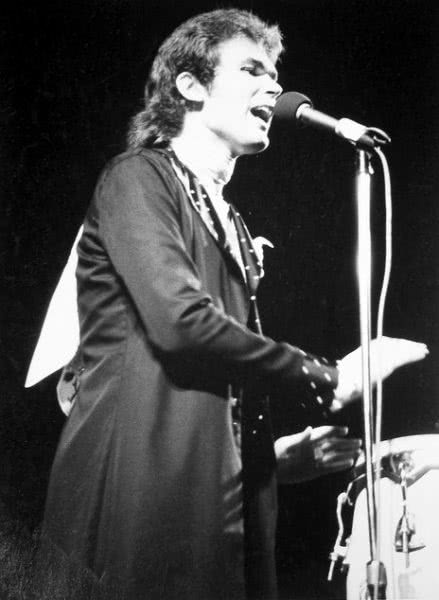
In 1978 when Dragon went on Countdown to plug their chart topper, singer Marc Hunter belted out ‘Are You Old Enough’, the teen studio audience shouted back en masse, “Yes! You can trust me!”
Rock’s obsession with under age sex has mostly got through without actually mentioning the jailbait age.
But the inference was there on Gary Puckett & The Union Gap’s ‘Young Girl’ from 1968, “You led me to believe you’re old enough”, and The Knack’s ‘My Sharona’ from 1978 “I always get it up, for the touch of the younger kind.”
For the opening of The Beatles’ ‘I Saw Her Standing There’ (1963), Paul McCartney came up with “Well, she was just 17 / Never been a beauty queen.” Lennon hated ‘beauty queen’ and suggested the more wink-wink “you know what I mean”.
McCartney would say later, “Which was good, because you don’t know what I mean!”
Check out ‘I Saw Her Standing There’ by The Beatles:
https://www.youtube.com/watch?v=uZMQU4c1pEg
The number 16 keeps popping up the most, even making it onto radio. Best known are Chuck Berry’s ‘Sweet Little Sixteen’ in 1958, Benny Mardones’ ‘Into The Night’ from 1980 singing “She’s just sixteen years old, leave her alone, they say”, and Kiss’ ‘Christine Sixteen’ (1977).
In Johnny Burnette’s ‘You’re Sixteen (You’re Beautiful And You’re Mine)’ (1960), the guy is older than 16 because he drives a car. The Ringo Starr version in 1973 went to #1.
In 1978, Cold Chisel paid “tribute” to the song with the title of their live EP from the Regent Theatre in Sydney, changing it to You’re Thirteen, You’re Beautiful, and You’re Mine.
The cover featured a topless shot of a flat mate of Jimmy Barnes’ girlfriend. Photographer Greg Noakes said, “The band said they knew of a great toilet for the shoot.”
The 13 came from the fact that Burnette’s fellow ‘50s southern rock and roller Jerry Lee Lewis’s career collapsed after the press found out he married his 13-year old cousin—an acceptable norm in parts of the Deep South.
Speaking of toilets, one was originally to adorn the cover of The Rolling Stones’ Beggars Banquet album (1968) which included the track ‘Stray Cat Blues’.
In the song, Mick Jagger tells the young sharp-toothed lady who is aged 15 (the lyrics are often changed to 13 in live versions) he doesn’t need to see her ID because, “It’s no hanging matter / It’s no capital crime.”
